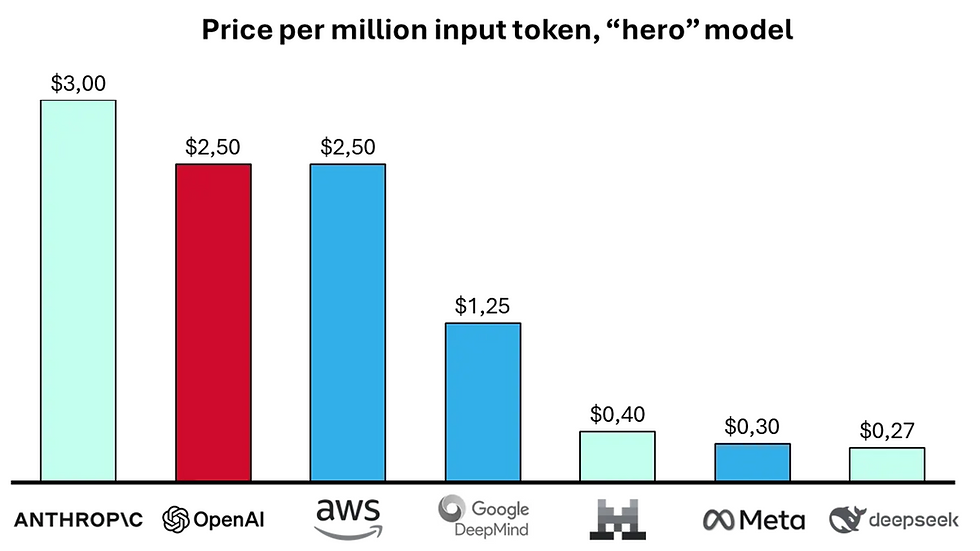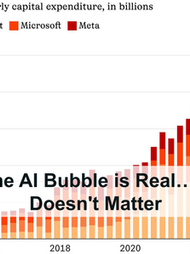What Superbowl Ads Tell Us About the Future of Technology
- Adrien Book

- Feb 4, 2019
- 7 min read
Updated: Apr 22, 2023
I’m not American. As such, I have a hard time fathoming the cultural and social importance of the Superbowl, even if I can appreciate the fans’ fervor and the ever-so-entertaining pageantry taking place every year. It is my understanding that this year’s game between the Patriots and the Rams was a particularly dull affair, and that some Chipotle-looking artist took his shirt off and that it was a whole thing. All the memes pages are talking about it. Also the Spongebob Squarepants part of the Internet is rioting. Apart from that, there is little to be said about the main events which are the game and the half-time show.
The adverts, on the other hand, have always been my go-to staple to better assess the mood the largest economy of the world finds itself in at a particular moment in time. It is, after all, one of America’s greatest cultural export after Hollywood. And while this year’s adverts were a lot more mild than “controversial” when compared to last year, one could still sense a hint of unease over the beginning of our co-existence with increasingly autonomous robots and algorithms. And because I don’t like empirical research and enjoy TV, I’ve elected to over-interpret 6 Superbowl ads in order to gauge popular culture’s thoughts on our robotic future and extrapolate a deeper meaning from silly gags.
Maybe this is why I don’t get invited to viewing parties.
TurboTax
The above advert features a “RoboChild” which dreams of becoming a… TurboTax live CPA ? It is however told that this just isn’t possible, as all TurboTax CPAs are human beings “with real emotions”. And, as it turns out, RoboChild is not emotionally complex enough for the job. The robot, saddened by the news, creepily laughs, which further demonstrates how unfit it is for the role. Child Labour laws are not discussed.
Interestingly, one of the most efficient use of machine learning and Artificial Intelligence at this time is in the customer service sector, where large amounts of data and abundant customer pain points allow companies to use algorithms to better predict demands, answer questions or optimise customer journeys. However, this has come with a lot of failed attempts which have infuriated customers (how often have you shouted “I WANT TO TALK TO A HUMAN” at your phone in the past year?). Through this advert, TurboTax differentiates itself from its competitors by emphasizing its (newfound, as the phrase “now with CPAs on demand” highlights) human aspects.
It shows that as companies find more and more use case for A.I, there might be a chance for technology-challenged companies to differentiate themselves enough to earn new market shares and offset productivity losses by highlighting its rewarding human touch. It also shows that we are far from a day when robots will be as trusted as humans for customer service.
This is also a form of CSR tactic : TurboTax will not replace its people with cheap technology. This gives it a good image and might help with recruitment, as well as hurt the competitors’ image.
Michelob
In the above ad, we see futuristic-looking humanoid robots outperforming humans at running, golfing, boxing, cycling… However, these robots are sad because they cannot have a drink after their efforts. Indeed, staying fit, according to the brand, is only worth it, if you can enjoy it. Alcoholism is not discussed.
The clip shows that though we are indeed anxious about being systematically outperformed by machines, we will always find solace in what makes us human. As we shall see, this is a recurring theme for adverts.
The emphasis on sport is interesting : we have created machines that are vastly superior to humans at cognitive tasks, but seldom any that might outperform a human at complex physical tasks such as running, as Boston Dynamics has repeatedly shown. I believe this is just a branding decisions given the advert’s context. Yet, it does not help educate the average person on what robots can and cannot do.
The beer also boasts about having “no artificial colour or flavour”. This is likely a coincidence, but props to whoever made the ad if it’s a commentary on the tastelessness and lack of soul of Artificial Intelligence.
SimpliSafe
The main idea behind this advert is simple : EVERYTHING IS TERRIBLE. And because everything is terrible, we’re scared. We’re scared of snakes, diseases, lightning, garage doors… and, most importantly, we’re scared of robots.
Robots are taking our jobs. Robots are flying over our property and spying on us. Robots are listening to our every conversation. And in the middle of this, creepy neighbors exacerbate it all by droning on about the latest gossip seen on their phones.
This clip is very on the nose with the fear shown:
It’s no wonder we want to remain safe in this world, and will wish to continue to be safe from all these issues. Given America’s… culture, this ad could have been for gun rights. The fact that it advertises more tech, which would be connected to our homes, is somewhat puzzling given the ethical dilemmas smart homes bring up. It is nevertheless not wrong : a future of “good” algorithms vs “bad” algorithms, “good” robots vs “bad” robots, is closer than we think.
SPRINT
The above ad is kind of confusing. I mean… look at the above picture. At the heart of it, though, it’s about robots coming up with ideas, and being terrible at it. It’s also about Bo Jackson, a star of both football and baseball, who wants you to know that Sprint gives you the best of both worlds. I guess Miley Cyrus was busy elsewhere that day.
This one is rather easy to decode (because it’s a terrible advert) : we don’t need robots to tell us how to send messages. Advertisers, who are getting heavily replaced through automation, might really like this message. Nevertheless, the fact that robots were used instead of children, trolls or witches, however, shows how much our robotic friends are at the forefront of our minds.
Pringles
Pringles’ advert shows two men discussing the delights of stacking Pringles together in order to create adventurous mixes of flavour. One asks how many flavours one could come up with, and Alexa interjects to answer. It goes on to state its sadness: it has no hands, no mouth and no soul to enjoy the delicious snacks. Cue the sad music. “I am at the mercy of a cruel and uncaring…” she’s then cut off.
We assume the word “God” was coming. Interestingly, the Artificial Intelligence vocabulary has always been a phantasmagorical entanglement of messianic dreams and apocalyptic visions, repurposing words such as “transcendence”, “mission”, “evangelists” and “prophets”.
Equally interesting is the lack of empathy shown by our protagonists toward the algorithm : should it mimic human behaviour better, would we be more empathetic? The ethical questions abound, yet it appears from this ad that it may never be the case, which does not bode well for the future A.I wars (All hail Rokko’s Basilisk). In half of the adverts presented in this article, humans either ignore or rejoice in an Artificial Intelligence’s pain and/or anguish.
Not a good look.
Final thought: I simply cannot believe that Amazon let Alexa answer a question it was not directly asked. This simply strengthens the belief that the Amazon tool is listening at all times. Seems like an unforced error.
AWS
Speaking of… Alexa is embedded in a microwave in this ad, and AWS pokes fun at itself for its apparent failure of indeed putting it everywhere (toothbrushes, dog collars, hot-tubs, in space…). It also refers to “the incident” : a time when Alexa turned the US’ power grid on and off multiple times.
Listen. This advert is fun. It’s goofy. It has Han Solo.
But God damn it, did Amazon just pretend that it a) controls America’s power-grid and b) that an algorithmic error could shut it all down? Because it could happen, and no one would be laughing then. This advert further highlights the risks of putting large things in the hands of untrained algorithms which may bug at any time.
In conclusion…
I understand that these ads are for laughs, and are purposefully unrealistic. But they reflect our common psyche, our hopes and fears for the future. It reflects not only our anxiety, but also our misunderstandings, of which there are many :
Nearly all adverts make sure to state that robots are far from human, and have no human emotions. However, humans design them and put a bit of themselves in their creation. We know this. As creators, it is mankind’s duty to control robots’ impacts through appropriate, ethical, and responsible frameworks, as well as philosophical boundaries.
There is also a near-constant emphasis on what makes us human. Beer. Arms. Emotions. All of which opposes us to the digital world. But the reality is more complicated. Modern robots are designed to be cooperative, not to aspire to resemble humanity. Advertisers could possibly do a lot of good by simply showing how often we are helped by such technologies.
Most of the robots we see are humanoid.This is understandable : we need a physical representation of the algorithms that worry us so. But making them human-like is simply silly as it ignores the difference between software and hardware. Yes, we have an A.I that can beat a human at chess, but the human can go home after the game and make tea, build IKEA furniture, then play some football. Have you seen robots move? Do you know how much those crappy robots cost? Millions!
At the end of the day, advertising merely holds a mirror to society, its triumphs and its inequalities. Maybe, just maybe, the best thing to come from Superbowl ads isn’t a better understanding of technology, but rather a better understanding of ourselves.
Good luck out there.



























무료카지노 무료카지노;
무료카지노 무료카지노;
google 优化 seo技术+jingcheng-seo.com+秒收录;
Fortune Tiger Fortune Tiger;
Fortune Tiger Fortune Tiger;
Fortune Tiger Slots Fortune…
站群/ 站群
gamesimes gamesimes;
03topgame 03topgame
EPS Machine EPS Cutting…
EPS Machine EPS and…
EPP Machine EPP Shape…
Fortune Tiger Fortune Tiger;
EPS Machine EPS and…
betwin betwin;
777 777;
slots slots;
Fortune Tiger Fortune Tiger;
EPTU Machine ETPU Moulding…
EPTU Machine ETPU Moulding…
EPTU Machine ETPU Moulding…
EPTU Machine ETPU Moulding…
EPTU Machine ETPU Moulding…
EPS Machine EPS Block…
EPS Machine EPS Block…
EPS Machine EPS Block…
AEON MINING AEON MINING
AEON MINING AEON MINING
KSD Miner KSD Miner
KSD Miner KSD Miner
BCH Miner BCH Miner
BCH Miner BCH Miner